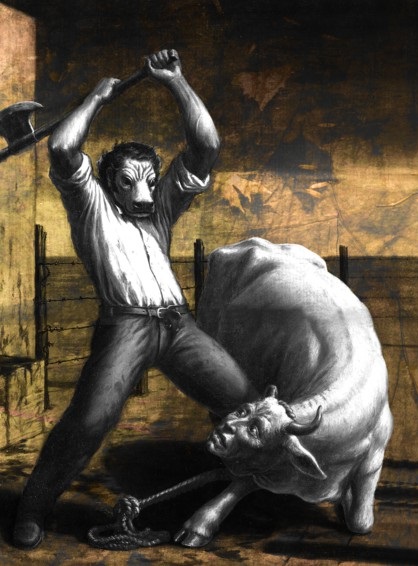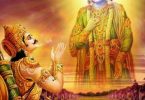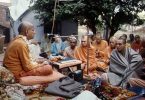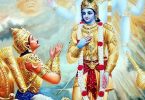Question: In CC Adi 17.167 Caitanya Mahaprabhu criticizes Islam as being illogical to Chand Kazi “There are many mistakes and illusions in your scriptures. Their compilers, not knowing the essence of knowledge, gave orders that were against reason and argument.” But in prior verse i.e. 166, he states ” Cow-killers are condemned to rot in hellish life for as many thousands of years as there are hairs on the body of the cow” which is even more illogical and unjust punishment by any standard of Christian scriptures, which is an eye for an eye , a tooth for a tooth. So based on Mahaprabhu’s judgement on Islam, we should reject Srimad Bhagavatam due to its descriptions of illogical/unjust punishments in the 5th Canto.
Answer by Romapada Swami: Yes, the punishment outlined in the 5th Canto SB is very severe, just as the act of killing one’s mother is very severe. Commensurate with a transgression is the reaction; this is the meaning of ‘eye for an eye’.
From a moral point, because we drink cow’s milk from childhood the cow is considered our mother. According to Vedic civilization, there are seven mothers and cow is one of them. Just as no civilized person would injure or kill their mother, the Vedas teach that to take milk from the cow and then kill her is the same as killing one’s mother. Similarly, the bull is considered like the father because the bull traditionally helps in the tilling of the fields, and thus is to be respected.
According to Vedic civilization the cow is to be given special protection. Cow is very important animal. Not only one gets from its milk so many nutritious food but it is also said to help in developing the finer tissues of the brain by which one can understand the higher values of life. Cow’s milk is in the category of goodness, and even great sages and saintly persons would subsist only on cow’s milk. Not only do we derive nutrition, but in fact it is said that religious principles are derived from the cow.
The human form of life bears with it great opportunity and corresponding facility – self-realization – as well as great responsibility. If we misuse this facility instead to bring harm to others, a great reaction awaits us.
Srila Prabhupada addresses the concern you raise regarding Cc Adi 17.167 in the purport of Cc Adi 17.168: “In our practical preaching work we meet many Christians who talk about statements of the Bible. When we question whether God is limited or unlimited, Christian priests say that God is unlimited. But when we question why the unlimited God should have only one son and not unlimited sons, they are unable to answer. Similarly, from a scientific point of view, the answers of the Old Testament, New Testament and Koran to many questions have changed. But a sastra cannot change at a person’s whim. All sastras must be free from the four defects of human nature. The statements of sastras must be correct for all time”.







